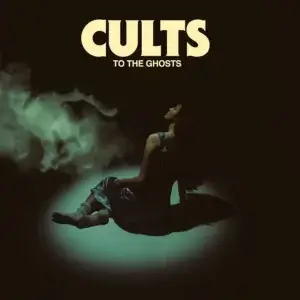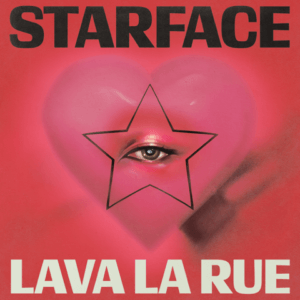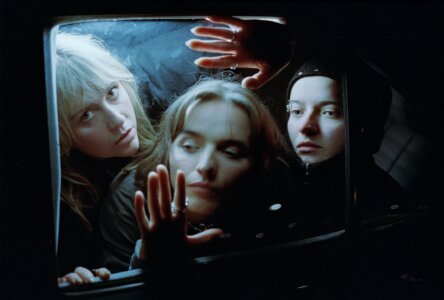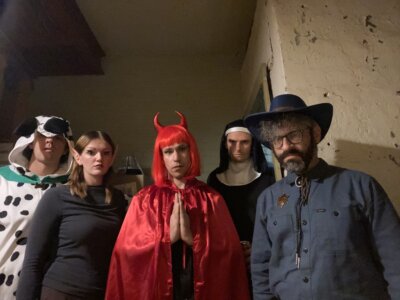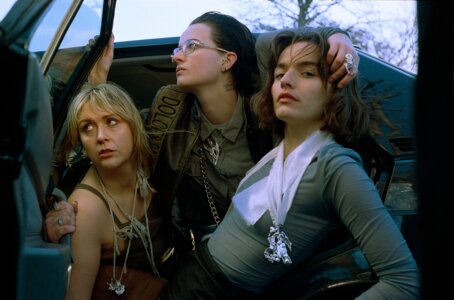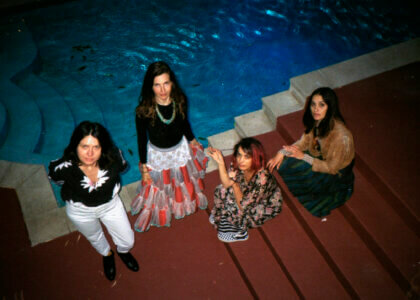Sleaford Mods Paint a Picture of Modern Life
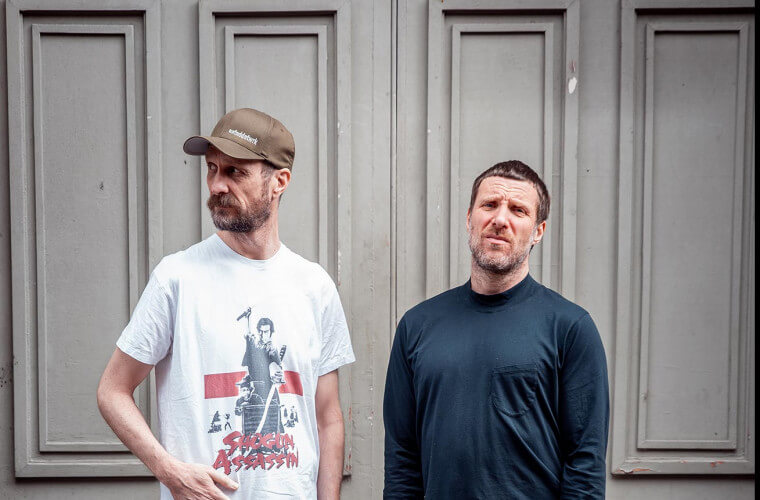
Nottingham electro-punks Sleaford Mods have always had a bone to pick with their country. Politicians are blundering the handling of the pandemic. Social issues and lockdown frustrations are rupturing England’s citizenry. The duo – Jason Williamson and Andrew Fearns – grew tired of witnessing these events from their windows, so they channeled their frustrations into song. The title of their sixth album, Spare Ribs, out January 15, refers to feeling like expendable scraps in England’s efforts against COVID-19. Spare Ribs paints a picture of the new dystopian world: fear, anger, confusion, despair, and impatience are visible in every brushstroke. Sleaford Mods take swipes at Prime Minister Boris Johnson’s former chief advisor, Dominic Cummings.
They criticize herd behaviour and disingenuous activism. Over Fearns’ gurgling, sputtering electronic beats, Williamson spatters observational lyrics. Though he’s as damning and cheeky as ever, Sleaford Mods don’t pretend to offer absolute answers. Instead, they prompt listeners to pay attention to and question the world around them. Sleaford Mods point their fingers, if only to ask, “Well, what about that?”
Spare Ribs is the band’s first album back on Rough Trade following an ill-advised split from the label in 2018. The album features Sleaford Mods’ first two collaborations, including “Nudge It,” with Amy Taylor of cowpunk rock ‘n’ rollers Amyl and the Sniffers, and “Mork N Mindy,” with disaffected newcomer Billy Nomates. Spare Ribs is also notable because Williamson takes a break from his usual invectives to look inwards at himself and backwards to his childhood. He told Northern Transmissions about all these changes and more over Zoom.
Northern Transmissions: When I started preparing for this interview, I read your apology to the NME over your song “Dull.” In that interview, you said you’ve grown a thicker skin since that song, and shit rolls off your back more easily now. So I got a kick out of “I Don’t Rate You” and “Thick Ear,” because you clearly still enjoy telling people off and want to give fools a good smack.
Jason Williamson: I really like that kind of unreasonable, bitter, kind of unintelligent critique of people that I’ve been brought up with. A lot of people I know are like that. I’m also like that. My father was like that. It makes me feel better by airing any kind of frustrations you might have with someone, and I like putting them in songs.
NT: Has the pandemic shifted your priorities and made you realize the things that are truly important, like not what some magazine says about your band?
JW: Oh, fuckin’ ‘ell, yeah. And then business as usual kicked in. [laughs] When it started, we were all quite shocked, because this hasn’t happened to Western civilization for over a hundred years. When that settled down, and the boredom and frustration kicked in, and also the divisions and the cultural wars that started off the back of it, it became just another normal day, in a lot of respects.
NT: “Nudge It” is another song where you take a swing at a certain group of people, people who virtue signal and posture. You said those people tend to stick together, especially famous ones, who like to name-check each other in interviews. So I’m wondering if your awareness of that affects how you engage with other musicians, especially those who share your background and politics. Are you careful to not get too cozy with them?
JW: I think a little bit. The thing with music is it’s full of ego. My ego is just as big as the next person’s and probably just as big as the person I so often criticize. That alone is a recipe for disaster in the sense of trying to carve out any decent relationships with people in this business. I don’t think I know anyone I have continued to communicate with since the band took off. I sometimes have kind of close relationships with people for a while, and then that just fizzles out. Generally speaking, I keep to myself. I’m a family man. I don’t go out drinking anymore. I don’t do any of that business. I would question hanging out with lots of famous people all the time. I would find it uncomfortable.
NT: Spare Ribs was mainly inspired by the pandemic: your experience during it, how your government’s been handling it, how the English people have been coping with it. And the title track was about seeing homeless people in the same spaces where people who own Teslas also go. Would you say that in England, the wealth inequality has become even more visible during the pandemic?
JW: I think that’s always been there. It just so happens within my sightline: homeless people on hard drugs in churches and people lent against their Teslas discussing how they bought it and how wonderful it is. It occurred to me you got this guy Elon Musk, who reminds me a lot of Henry Ford for obvious reasons. He is the new person who is renowned for car manufacturing on a massive scale, some untouchable icon of capitalism. In this time of absolute financial starvation, you’ve got this massive billionaire taunting people on Twitter about his fabulous sex life and whatever else. All of these things combined, it’s quite an insane set of images. I’m just trying to paint a picture of modern life, which isn’t great and hasn’t been for a long, long time.
NT: And painting that sort of grim picture – you also do that very well on “Out There,” which describes the surrealness of when you ventured out into the world during the early part of the pandemic. Seeing masks everywhere, general disorder, and rising tensions among people, you compared it to being in a disaster movie. When the lockdown began, a lot of people were binging movies about viruses and post-apocalyptic worlds, like Contagion, Pandemic, and 28 Days Later. Did you fall into that despairing, self-flagellating pit?
JW: No, I didn’t. I just got on with it. There isn’t a lot you can do. There isn’t much of a kickback against the powers that be. If they want to waste ya, they’ll waste ya. Although the people in charge aren’t very reassuring and for the most part can’t do their jobs, I’m convinced that there is a series of people behind them trying their best to try and figure out how to get rid of the virus.
NT: “Glimpses” tackles consumerism, which you’ve called “stupid” and “pathetic” but also something that you enjoy doing; it’s something we all do. Was this song inspired by the pandemic specifically? How has the pandemic affected your sense of materialism?
JW: I still like it. I love it. [laughs] It’s the only thing apart from my family that makes me happy, buying shit. [laughs]
NT: And now that you don’t drink, you got more money-
JW: I got lots of shit to buy, now that I don’t drink!
NT: I was just curious because I’d never been really materialistic, but I think that was largely because I was never home. I go out a lot. I’m always at concerts. But now that I’m always home, I’m realizing things like, “This couch is fucking uncomfortable. My walls are bare.” Like, it would be nice to be comfortable. I think a lot of people have gone one way or the other, where they’re like me, or they’ve realized all the unnecessary shit they don’t need.
JW: Yeah, totally. The song “Glimpses” talks about the stupidity of “possession” and how the thing you’re actually buying means very little. It’s not so much the thing you buy, it’s the action of buying something and the idea of you owning that thing. The actual product, unless it’s something beautiful, you generally forget about it.
NT: “Glimpses” is also about the idea of capitalism being an every-day thing. You said it seemed to you that idea almost faded away immediately when the pandemic started. But I’d say the idea has reasserted itself. I think it’s clear from the fact that in many places, arts theatres and concerts are still banned, but people are allowed to go to bars, shopping malls, and gyms, because there’s more money in those things.
JW: Very true, yeah. Very true.
NT: The pandemic also led you to doing a lot of self-reflection. On “Top Room,” you analyze your attitudes and behaviours. On “Fish Cakes,” you think back to your childhood. Before you had so much time on your hands because of the pandemic, did you think about these things much? Were you a nostalgic person? Did you dwell on regrets or grudges, or relive old glories in your head?
JW: Yeah, I dwell on a lot of things. But as regards to thinking about my childhood, that came after I injured my back over the summer. When I was younger, I had an operation on my back, and [the injury] was related to that. So I started thinking about childhood and the memories attached to that.
I started going through a period of almost self-doubt and self-pity and reevaluating who I was and my principles. “Who am I to criticize? Who am I to be this, and who am I to be that?” And where this injury was going, because it didn’t look like it was healing any time soon. I was on loads of co-codamol and other painkillers. I just went into a world of slow motion and feeling very, very helpless. There was no end in sight.
I was born with a rare version of spina bifida. I was lucky enough to lead a physically able life in all areas. By the time I got to 10 or 11, I had chronic back pain to the point where I couldn’t walk, and they said there was a 50/50 operation where I could lose the action in my left leg. And it was a success; I was able to continue walking. [The injury] just got me thinking about my childhood, my experiences, and my memories of then, and I tried to paint a picture of those things in “Mork N Mindy” especially and “Fish Cakes.”
NT: Speaking of “Mork N Mindy,” this song and “Nudge It” are the band’s first two collaborations. Considering what you were saying earlier about not really getting too cozy with other musicians, what prompted these sudden collaborations?
JW: We decided to go and have a meeting with Rough Trade, because we left Rough Trade in 2018, and it was a really hasty decision by our old manager. And then it turned out that it wasn’t something we should have done. And so we then parted company with our old manager and spent the year with a new manager. We released Eton Alive independently, and then we went through a series of meetings with other record companies, and we finally decided to go back with Rough Trade. Because our old manager kept us apart, we didn’t really talk to them. So we decided to go down and have a meeting with them and discuss what they were looking for in the new record, and the idea of collaborations came up. I was a little bit skeptical because collaborations didn’t seem to suit the idea us. But the more I thought about it, and the ideas we started writing, it became clear that it might be a good idea.
We were fans of Amyl and the Sniffers. We knew them a little bit, and so I asked Amy. We recently got to know an up-and-coming artist called Billy Nomates, who got in touch with Andrew about two years ago on Instagram and started sending him music she’d done. He then passed it on to me and our manager, and we became convinced she was brilliant. And so we got to know her a bit, she then came under the management wing of our manager, I collaborated on her debut album, and I asked her then to come in on “Mork N Mindy” as well.
NT: Has the experience of working with both Billy and Amy opened your mind for future collaborations?
JW: A bit half and half. I don’t know what’s gonna happen with the next one. There probably might be a collaboration on there. Who knows? But It’s definitely worth looking into again. But it might be something you don’t want to overdo.
NT: Lastly here, as if “Fish Cakes” wasn’t personal enough, there’s also “All Day Ticket.” But I know you don’t want to go into too much detail about it, other than it’s a personal goodbye. Was writing “All Day Ticket” in vague terms not only to keep it private but to make it more universal, especially in this time when so many people have said goodbye, to loved ones, jobs, vacation plans, and hobbies?
JW: What I based the song on – and we’ve all been there – we’re in a really happy position, and then we neglect it, keep neglecting it, and then we end up in a really horrible position. And it’s up to us whether or not we are honest with ourselves about why that happened. That is the only way to crawl out of that.
NT: Yeah, very true. Well, I think we’re just right on time here.
JW: Thank you.
NT: Yeah, thanks a lot. It was great talking to you.
JW: Yeah, you too. I hope you get that sofa sorted.
Latest Reviews
Tracks
Advertisement
Looking for something new to listen to?
Sign up to our all-new newsletter for top-notch reviews, news, videos and playlists.


